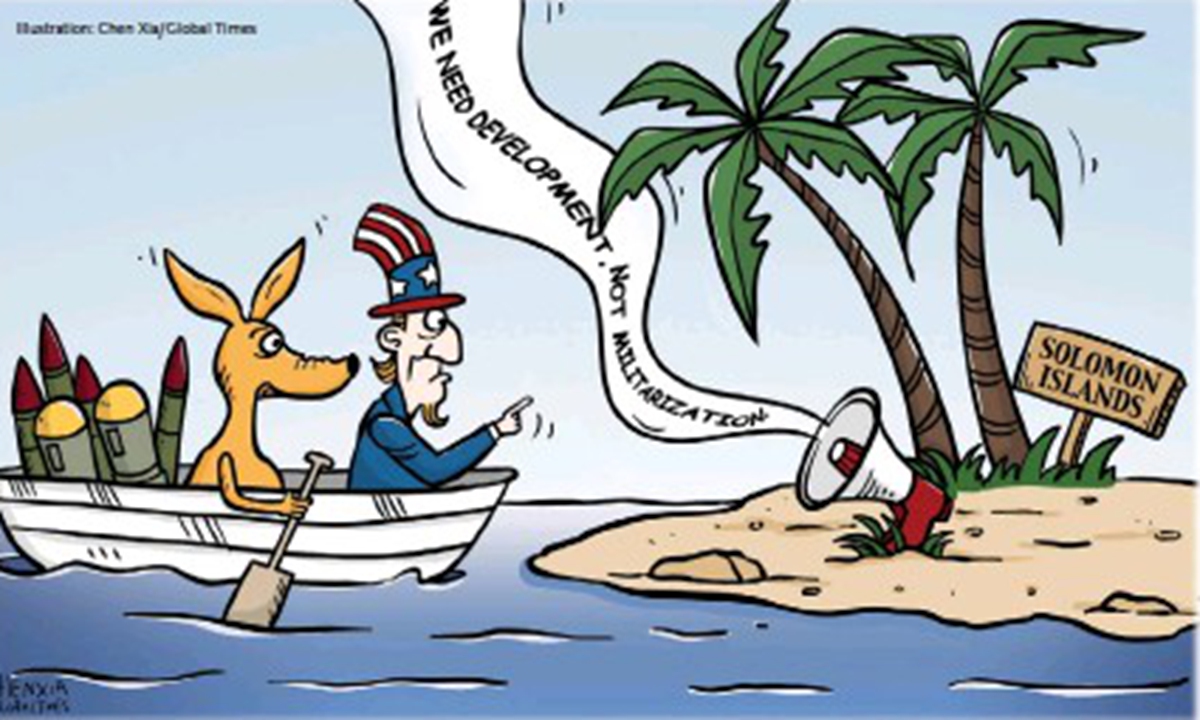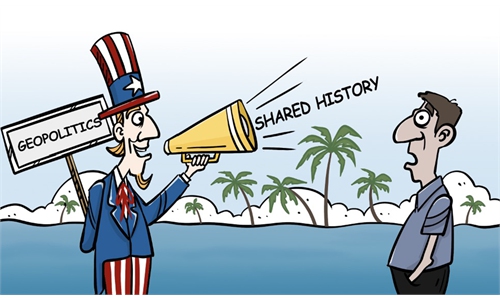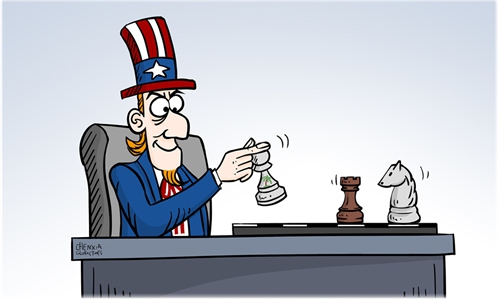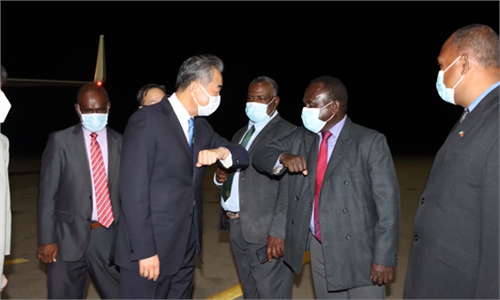
Illustration: Chen Xia/GT
During his trip to Papua New Guinea (PNG) earlier this month, Australian Defense Minister Richard Marles proposed a plan to steer the island countries in the South Pacific toward Australia's military orbit. According to this reckless plan, Australia will attempt to incorporate the Pacific Island countries into a regional defense bloc. The military forces of the island countries will attend a warfare training school in Queensland and will also be deployed with the Australian Defence Force (ADF) for military exercises and support missions, in the same manner that Australian servicepersons serve in the US and British militaries. Soldiers and officers from the Pacific countries have also been given an offer to be embedded into the Australian army under Australian command.Without any camouflage under the pretext of "collaboration and aid," this strategy proposed by Marles is the starkest attempt to militarize the Pacific region and weaponize the island countries to serve Australia's strategic targets, which in essence are part of Washington's "Indo-Pacific Strategy" aimed at deterring and containing China's development.
Like never before, Canberra is modeling itself on Washington's tactics and is trying to act as a military hegemon in the South Pacific. Australia attempts to build a regional strategic framework under its dictated will, merging the armed forces of the Pacific Island countries (PICs) into a new military partnership with the ADF and its US ally.
It has been revealed by the media that a "Pacific regiment" is proposed to be created within the Australian army. Pacific islanders would also be directly recruited to join the ADF. According to this proposal, "Australian and US ties with Pacific island countries will be the key to success or failure in a war with China over Taiwan," the Australian newspaper reported on October 13.
In other words, the genuine objective of all the rhetoric about military cooperation and support is actually to enlist Pacific islanders to act as Washington and Canberra's cannon fodders in their future confrontation with China.
Meanwhile, a scare and smear campaign is being waged relentlessly to demonize China's cooperation with the Pacific Island countries. Take the recent security cooperation agreement between China and the Solomon Islands as an example. As a way to enhance the capacity of the Solomon Islands' police forces to tackle possible future social unrest, in addition to having invited Chinese police experts to Honiara to provide training programs, a detachment of Solomon Islands police officers had just arrived in China for their training session. China has also donated police equipment such as shields and mock guns.
It is truly sensible that China has business interests in the Solomon Islands. A stable social order is obviously conducive to a favorable environment for China's business and investment activities in the country, which in turn has significantly helped improve the local economy and uplift people's livelihoods.
Disregarding the aspirations for social stability and economic development of the Pacific Island nations, China hawks in both Canberra and Washington have been distorting the basic facts to fabricate outlandish stories about a Chinese military base in the Solomon Islands, to create and hype up a "China threat" theory with an attempt to impede the Pacific's mutually beneficial cooperation with China.
Canberra and Washington's usage of high-handed coercion, in addition to their sweet-talking coaxing, has proved to be entirely futile. As an independent and sovereign nation, the Solomon Islands, as well as other Pacific Islands countries, have the political wisdom to discern facts from falsehoods, and to refuse to act as pawns for the US' hegemonic strategy.
As a matter of fact, one prioritized item on Marles' agenda during his visit was to discuss the continuation and expansion of an Australia-US naval base on PNG's Manus Island, which Canberra describes as a "huge strategic asset." It is plain to any eye that Canberra is trying to turn the Pacific region into a springboard for the US military adventurism, which would critically undermine the regional stability and economic development.
During an interview with The Australian newspaper, Marles claimed that Australia would be asking the Pacific Island countries some "fundamental questions," such as "How can Australia help? How can Australia be a better partner?" A simple answer would be: Stop taking advantage of the Pacific Island countries and stop meddling with their internal affairs, and treat them with equality and respect.
The author is president of the Chinese Association of Australian Studies and director of the Australian Studies Centre at East China Normal University. opinion@globaltimes.com.cn



